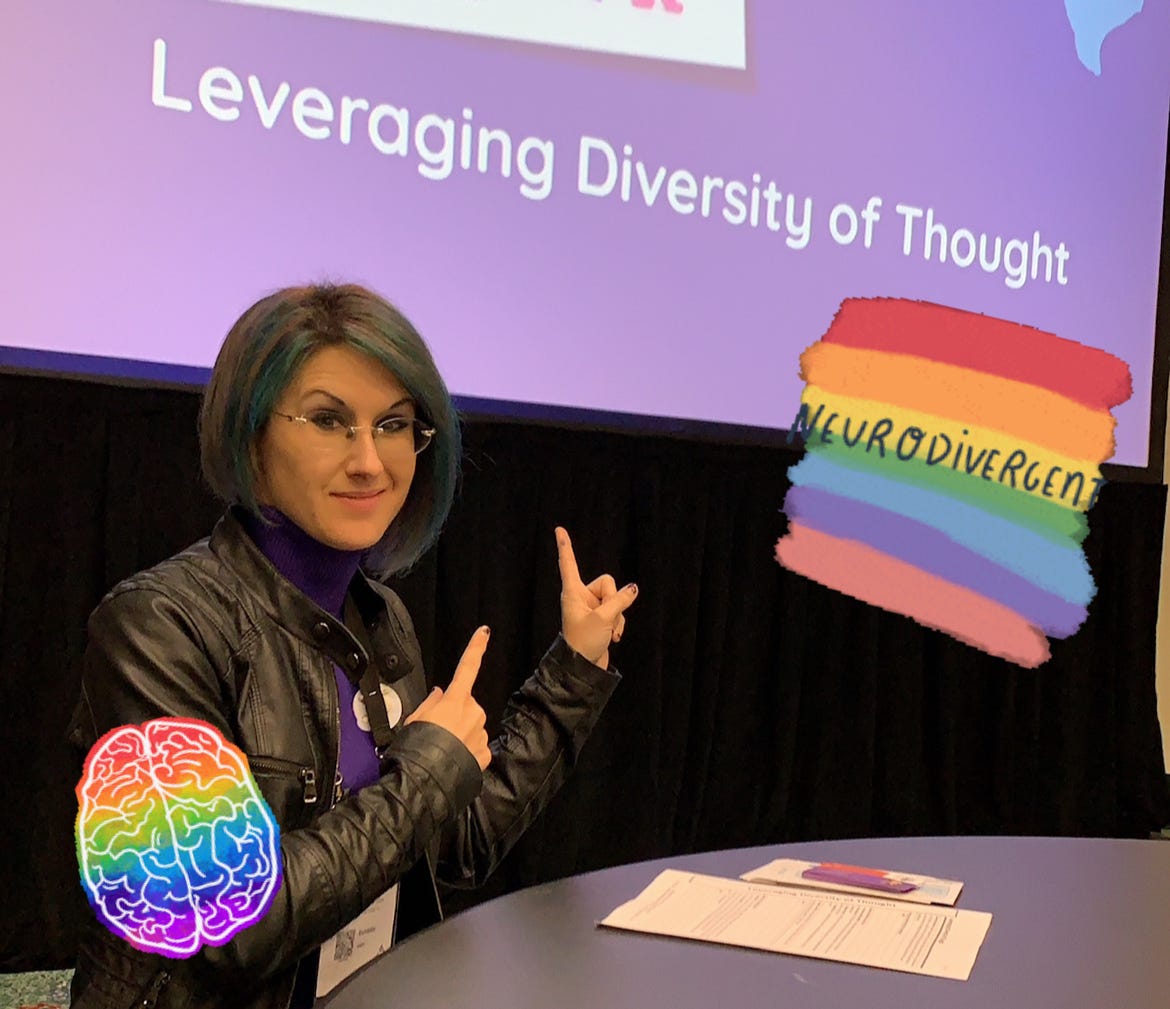Embracing Authenticity: The Power of Neurodivergent Identity
How embracing your NeuroDivergent self can help you to live a more fulfilling life
NeuroDivergent People have brains that diverge from "average."
Our minds are DIFFERENT, but different is not bad.

NeuroDivergent People's different cognitive profiles allow us to approach problems and challenges in novel ways, yielding fresh insights and solutions that our NeuroTypical peers might not have considered. However, we must first be able to embrace our authentic NeuroDivergent creativity (and not be stifled by neuro-normative expectations).
Celebrating Strengths, Honoring Weaknesses
Understanding one's strengths is crucial for NeuroDivergent (and all) people because it allows us to maximize our unique abilities by leveraging those skills. Which builds confidence and gives us a sense of purpose and meaning.
When NeuroDivergent People are able to utilize our strengths, we can excel in roles that play to those strengths, compensate for our challenges, and communicate our needs more effectively to those around us.
Self-awareness is key for NeuroDivergent People who want to leverage our strengths because it enables us to advocate for accommodations and support, leading to a more inclusive and empowering work environment.
Maybe you have a knack for spotting patterns, are a brilliant designer, writer, or artist, or are a master of creative problem-solving. Whatever it is, own it!
By leaning into our strengths, NeuroDivergent People can thrive and have happy, meaningful lives.
While it is important for NeuroDivergent People to understand and (lean into) our strengths, we can also benefit from acknowledging our weaknesses and finding ways to support (or accommodate) them.
Maybe you struggle to remember when people give you spoken directions, or you don't handle surprises or last-minute changes well.
Maybe you need extra time to process and review new information or a quiet space to work.
Maybe you do best when instructions are given to you in writing, or you do best work when you can talk things over with others. Maybe you like to be left alone to figure things out.
NOTE: If you don't know your weaknesses (or what you need to be the best version of yourself), you might want to take some time to ponder and better understand this part of yourself (regardless of whether you are NeuroDivergent or NeuroTypical).
Honoring NeuroDivergent Pace
NeuroDivergent pace often varies from NeuroTypical pace (and we may have periods of increased productivity followed by crashes).
Some NeuroDivergent People can hyperfocus or get "in the zone," working on something we are passionate about (or well suited to) without stopping for 8 hours straight (or more), while other NeuroDivergent People may need to space out their tasks, taking many breaks between them.
Neither style of pace is wrong; both get the tasks done and can create quality results.
Additionally, people may need more beaks when doing demanding tasks or tasks not suited to their natural skills and abilities (because these tasks tend to wear people out more quickly).
Regardless of NeuroType, all humans peak and wane at varied times of the day.
Understanding where your energy goes and how to get it back is essential for people of all brain types, especially NeuroDivergent People.
Paid subscribers have access to more of this post. Thanks to every one of you for supporting my work.
Keep reading with a 7-day free trial
Subscribe to NeuroDivergent Rebel’s Substack to keep reading this post and get 7 days of free access to the full post archives.




